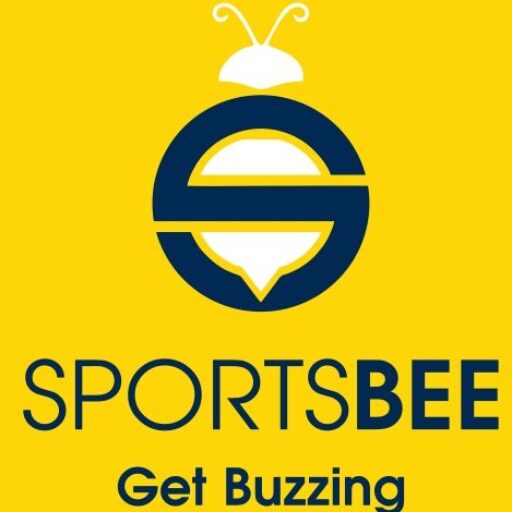Becoming a sports coach is more than just having a passion for sports or excelling in a particular game. It’s a multifaceted profession that requires a diverse set of skills to effectively guide, motivate, and develop athletes of all levels. Whether coaching beginners or elite athletes, a successful sports coach must possess a combination of technical knowledge, interpersonal abilities, strategic thinking, and leadership qualities.
In this detailed guide, we will explore the essential skills every sports coach needs, why these skills are critical, and how aspiring coaches can develop and refine them to succeed in their careers.
1. Deep Knowledge of the Sport
Why It Matters:
A fundamental requirement for any sports coach is an in-depth understanding of the sport they are coaching. This includes mastery of rules, techniques, tactics, and strategies. Athletes look up to their coaches for guidance rooted in expertise; without it, credibility diminishes.
What It Encompasses:
- Technical Skills: Knowledge of the fundamental skills and mechanics of the sport.
- Tactical Awareness: Understanding game strategies, formations, and situational decision-making.
- Rules and Regulations: Familiarity with the latest rules, safety standards, and compliance requirements.
- Physical and Mental Aspects: Awareness of the physical demands and mental resilience required in the sport.
How to Develop:
- Pursue certifications, coaching courses, and ongoing education.
- Stay updated with the latest trends, techniques, and research.
- Practice and participate in the sport to maintain personal proficiency.
2. Effective Communication Skills
Why It Matters:
Communication is the backbone of coaching. A coach must clearly convey instructions, provide constructive feedback, and motivate athletes. Miscommunication can lead to confusion, frustration, or injury.
What It Encompasses:
- Clarity and Conciseness: Explaining techniques and tactics in ways athletes can understand.
- Active Listening: Paying attention to athletes’ concerns, feedback, and emotional states.
- Positive Reinforcement: Encouraging athletes through motivational words.
- Non-Verbal Communication: Using body language, gestures, and tone to reinforce messages.
How to Develop:
- Practice active listening in daily interactions.
- Attend workshops on communication and leadership.
- Record coaching sessions to analyze clarity and tone.
- Learn to adapt communication styles based on athletes’ age, skill level, and personality.
3. Leadership and Motivation
Why It Matters:
A coach is a leader who influences athletes’ attitudes, effort levels, and commitment. Strong leadership inspires confidence, fosters team cohesion, and drives athletes to achieve their best.
What It Encompasses:
- Inspiring Confidence: Building athletes’ self-belief.
- Setting Goals: Helping athletes set realistic and challenging goals.
- Leading by Example: Demonstrating discipline, dedication, and professionalism.
- Conflict Resolution: Managing disagreements within the team effectively.
- Creating a Positive Environment: Fostering trust, respect, and camaraderie.
How to Develop:
- Study leadership theories and coaching philosophies.
- Gain experience by leading small groups or teams.
- Seek mentorship from experienced coaches.
- Practice emotional intelligence and empathy.
4. Planning and Organization Skills
Why It Matters:
Effective coaching requires meticulous planning—training schedules, practice sessions, competitions, recovery periods, and more. Well-organized programs maximize athlete development and reduce injury risk.
What It Encompasses:
- Training Program Design: Structuring periodized training for progression.
- Time Management: Balancing training, rest, and academic or personal commitments.
- Logistics Coordination: Arranging venues, equipment, travel, and accommodation.
- Record Keeping: Monitoring athlete progress, medical history, and performance data.
How to Develop:
- Use planning tools and software.
- Study sports science and periodization methods.
- Reflect on past experiences to improve future sessions.
- Delegate tasks and collaborate with support staff.
5. Technical Coaching Skills
Why It Matters:
Coaches need to teach technical skills effectively, breaking down complex movements into understandable parts, and correcting errors to prevent injuries and improve performance.
What It Encompasses:
- Demonstrating proper techniques.
- Providing individualized feedback.
- Using drills and exercises to reinforce skills.
- Adjusting techniques based on athlete’s physique and ability.
How to Develop:
- Attend technical clinics and workshops.
- Study biomechanics and motor learning principles.
- Practice coaching different skill levels.
- Seek feedback from athletes on clarity of instructions.
6. Analytical and Critical Thinking
Why It Matters:
Coaches must analyze performance data, identify strengths and weaknesses, and adapt training accordingly. Critical thinking enables coaches to make effective decisions during training and competitions.
What It Encompasses:
- Watching and analyzing game footage.
- Interpreting performance metrics.
- Adjusting strategies based on opponent analysis.
- Making quick decisions under pressure.
How to Develop:
- Engage in continuous learning about sports analytics.
- Use video analysis tools.
- Study game tactics and opponent trends.
- Reflect on coaching experiences to improve decision-making.
7. Patience and Resilience
Why It Matters:
Progress in sports often takes time, and setbacks are common. Coaches need patience to nurture athletes’ growth and resilience to handle challenges professionally.
What It Encompasses:
- Supporting athletes through injury, loss, or slump.
- Maintaining composure during stressful situations.
- Encouraging consistent effort regardless of setbacks.
- Modeling perseverance and sportsmanship.
How to Develop:
- Cultivate emotional intelligence.
- Practice mindfulness and stress management techniques.
- Reflect on past challenges and lessons learned.
- Seek mentorship for handling difficult situations.
8. Empathy and Emotional Intelligence
Why It Matters:
Understanding athletes’ emotional states helps coaches tailor their approach, build trust, and foster a supportive environment.
What It Encompasses:
- Recognizing signs of stress, anxiety, or burnout.
- Providing emotional support.
- Building rapport and trust.
- Managing team dynamics and conflicts.
How to Develop:
- Practice active listening and empathy exercises.
- Attend workshops on emotional intelligence.
- Build genuine relationships with athletes.
- Be attentive to individual needs and concerns.
9. Adaptability and Flexibility
Why It Matters:
Every athlete is different, and circumstances change rapidly—weather conditions, injuries, or unforeseen events require coaches to adapt plans accordingly.
What It Encompasses:
- Modifying training sessions based on athlete fatigue or injury.
- Adjusting strategies during competitions.
- Embracing new technologies and methods.
- Being receptive to feedback and new ideas.
How to Develop:
- Stay open-minded and curious.
- Learn from diverse coaching experiences.
- Practice scenario planning.
- Embrace continuous professional development.
10. Knowledge of Sports Science and Nutrition
Why It Matters:
Understanding the science behind physical conditioning, injury prevention, recovery, and nutrition enhances athlete performance and safety.
What It Encompasses:
- Basic knowledge of physiology, biomechanics, and physiology.
- Designing appropriate strength and conditioning routines.
- Educating athletes about proper nutrition and hydration.
- Recognizing signs of overtraining or injury.
How to Develop:
- Pursue certifications in sports science or sports nutrition.
- Stay updated with latest research and guidelines.
- Collaborate with sports scientists, physiotherapists, and dietitians.
- Attend seminars and workshops.
11. Ethical and Professional Conduct
Why It Matters:
Coaches influence young athletes’ lives beyond the sport. Upholding integrity, fairness, and professionalism fosters a positive environment.
What It Encompasses:
- Adhering to rules and regulations.
- Respecting athletes’ rights and diversity.
- Promoting sportsmanship and fair play.
- Maintaining confidentiality and trust.
How to Develop:
- Follow ethical guidelines laid out by sporting bodies.
- Lead by example in behavior and attitude.
- Engage in ethics training and professional development.
12. Leadership and Mentoring Skills
Why It Matters:
Coaches often serve as mentors, guiding athletes through challenges and life skills. Strong leadership can inspire lifelong dedication to sports.
What It Encompasses:
- Providing guidance beyond technical skills.
- Building confidence and independence.
- Encouraging goal setting and personal growth.
- Leading with integrity and humility.
How to Develop:
- Study leadership and mentorship frameworks.
- Practice leading small groups or community programs.
- Seek feedback from athletes and peers.
- Reflect on your coaching philosophy and style.
Final Thoughts: Building a Holistic Skill Set
Being a successful sports coach requires more than just technical expertise. It’s about developing a well-rounded skill set that combines knowledge, leadership, empathy, adaptability, and professionalism. Continuous learning, self-reflection, and practical experience are vital in honing these skills.
Remember:
- The best coaches are lifelong learners.
- Building trust and respect with athletes is fundamental.
- Success in coaching is measured not only by medals but by the positive impact on athletes’ lives.
Whether you’re just starting your coaching journey or looking to elevate your skills, focus on developing these core competencies. Your growth as a coach will directly influence your athletes’ development, success, and overall experience in the sport.
Embark on your coaching path with passion and purpose — the world of sports needs dedicated mentors like you to inspire the next generation of champions!

